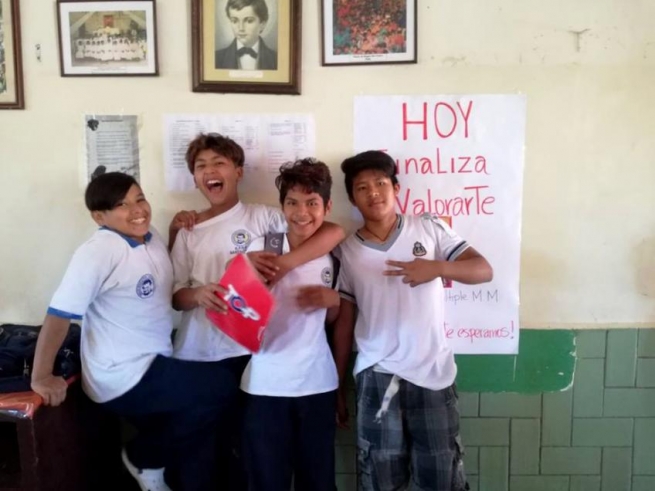BOLIVIA: Don Bosco Project Facilitates Educational Programming Through Cinema and Discussion

(MissionNewswire) Eydith Barrios, a young Colombian researcher and communication sciences graduate, recently presented an educational initiative at the Don Bosco Home, part of the larger Don Bosco Project in Santa Cruz, Bolivia. The initiative was targeted toward children and older youth who live at the home and who have been affected by negative life circumstances. The program was attended by 41 youth during May, June and July.
The educational initiative presented a series of films dealing with family and sexual abuse issues. The goal was to engage youth in cinema. The result was that youth were able to have open discussions with group leaders about love, respect, forgiveness, trust, family unity and hope. They learned through movies presented and the discussion. Youth also felt empowered with ideas and feelings. One of the fundamental educational elements of the training program was the participants’ ability to initiate debates and analysis.
“The Don Bosco Project is a dynamic set of programs that provide a harmonious environment where children and older youth who are living on the streets and are at-risk are able to access services tailored specifically for them,” says Father Pio Octavio Sabbadin, head of the Don Bosco Project.
The Don Bosco Project provides comprehensive rehabilitation and vocational training programs that bring social inclusion and meaningful employment to the students. Extending beyond emergency shelter, clothing and nutritious meals, the project brings together psychologists, social workers, healthcare staff and teachers who work together to address the needs of close to 2,000 children who access primary and secondary schooling and vocational education.
There are several ways in which youth connect with the programs provided at the Don Bosco Project. A free overnight shelter brings youth in off the streets and connects them with adults who show genuine concern and offer support. The shelter provides a safe environment, nutritious meals and a support network that can be life changing. A daytime program is also available for youth who are ready to escape their current situation and explore new opportunities. Salesian staff offers tutoring to help youth catch up on basic studies and return to school as well as information on specific trades. In addition, there are opportunities for participation in sports and other constructive group activities.
For young people age 15 and older who have demonstrated a commitment to leaving the streets behind, there is the opportunity to study at the Michael Magone House. Youth learn trades such as carpentry, auto mechanics and hair dressing that lead to stable employment and provide the opportunity to escape poverty and give back to the students’ communities. The Don Bosco Project helps youth in Bolivia to see all that life has to offer. It also provides them with the practical skills to leave life on the streets behind and connect with the educational and social resources to lead a more productive life.
Bolivia is the poorest country in South America and has the most unequal income distribution on the continent. According to UNICEF, 60 percent of Bolivians live below the poverty line with 40 percent of those living in extreme poverty. The poverty rate is higher in rural areas where the rate increases to 75 percent of the population. It is common for Bolivians to struggle to find adequate nutrition, shelter and other basic necessities.
The geography of Bolivia contributes to the overwhelming poverty of its residents. Large swaths of the country remain undeveloped with a lack of roads and infrastructure in place, negatively impacting the indigenous farming populations who typically live there. Only half of rural children complete primary school and many others leave school to help support their families, according to UNICEF. There are others who are left homeless by parents who cannot afford to care for them and those who leave their homes to escape violence.
###
Sources:
ANS – Bolivia – “ValorArte” Cineforum: a proposal to accompany and educate young people
UNICEF – Bolivia




